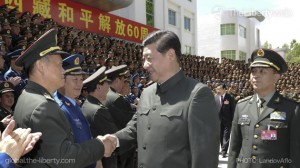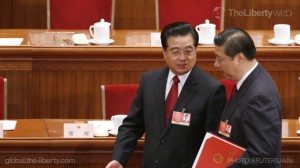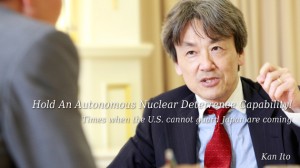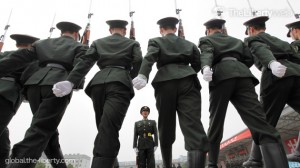Forecast for the World in 2012
Thorough analysis of the world in 2012 from international politics to Mayan prophecies
Obama’s re-election would have a negative impact on U.S national security policy
– In 2012, major countries neighboring Japan will go through changes of leadership. First of all, will Obama win re-election?
It is said that if the election was to take place now, President Obama would lose. It means that if the Republican Party chooses a sufficient candidate, they would win the election. However, the circumstances may change, depending on the outcome of the debates in Congress this autumn. The biggest issue is the budget.
To be concise, the point is how the budget will affect the defense spending. The Joint Select Committee has been charged with coming up with recommendations to reduce federal budget deficits. However, it is unlikely that they will reach an agreement. None of the members on either side is willing to compromise. If they cannot reach an agreement, automatic cuts will follow under the current budget law. In this case, the defense budget will be the most affected. This will affect the long term U.S. national strategy.
– There has been a proposal to reduce defense spending by $ 1 trillion over the next 10 years.
The outcome of the next U.S presidential election may have significant impact on U.S national security policy. As for national security policy, Obama has an increasingly left-wing liberal inclination. Moreover, National Security Advisor Donilon, too, is fairly left-wing. Obama seems to be very comfortable with him.
– And Vice President Biden is liberal, too.
Biden is also the left wing. In the White House, the members considered to be conservative are Secretary of State Hillary Clinton and Defense Secretary Leon Panetta. If the Republican wins, the current deficit reduction plan will be cancelled and the military budget will increase. In that sense, the next presidential election is very important for the U.S. to determine the national strategy in the future. If Obama wins, that may have a negative impact on U.S. defense policy.
Will the Chinese hard-line approach reverse after Xi Jinping’s regime is established?
– In China, Xi Jinping will be appointed as General Secretary and President next year. It has become clearer that Mr. Hu Jintao does not have power to control the military. How do you evaluate Mr. Xi’s leadership over the military?
It is fairly obvious that if the military continues to take a hard-line approach, it will harm China itself. My analysis is that once Xi Jinping is nominated as General Secretary at Communist Party Congress next fall, China will possibly become moderate.
Timed with his first presidential visit to China in November 2009, Obama stopped everything which would make China upset. He didn’t sell weapons to Taiwan. He neither met the Dalai Lama nor accused the Chinese of persecution of the Uyghurs. While the U.S. tolerated China, the hawks in China gained power and at the same time they were involved in a power struggle. However, once Xi’s regime is launched, the power struggle will be settled and the hawks will lose their influence.
Based on my historical observations, during the Cold War, the most difficult thing for the West is to deal with was the peaceful offensive. I think China might possibly launch a peaceful offensive.
-In contrast to China, the Soviet Communist Party had commanding authority over the military. I am doubtful if Beijing is capable of managing the military thoroughly.
We cannot rule out the possibility that the Chinese military could become radical but the U.S still remains militarily superior to China. China won’t be able to do much.






















